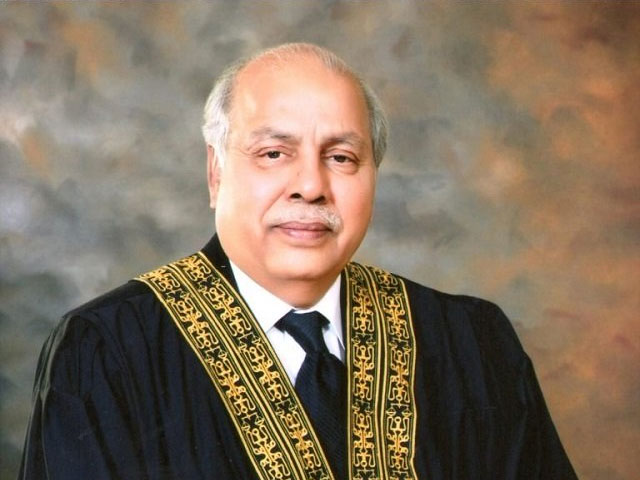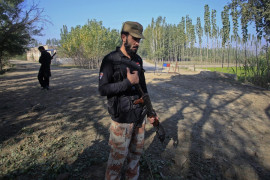
Chief Justice of Pakistan Justice Gulzar Ahmed on Monday observed that the lives of the people in Peshawar had become miserable due to extreme pollution.
The chief justice, while questioning the government’s Billion Tree Tsunami Project, said he “did not find a single tree in the provincial capital” upon his arrival in the city.
The chief justice made the remarks while hearing suo motu case on air pollution. He was presiding over a three-member bench comprising Justice Faisal Arab and Justice Ijazul Ahsan.
Commenting on the environmental conditions in Peshawar, the top judge noted that it was not possible to move around in the city with putting up a face mask even after the Covid-19.
At the outset of the hearing, K-P Advocate General Shumail Ahmad Butt, Industries Secretary Javed Marwat, Forestry and Environment Secretary Shahidullah and Environment Protection Agency (EPA) Director General Dr Bashir Ahmed appeared before the court.
The chief justice asked the advocate general what steps the provincial government had taken to protect the environment from industrial pollution.
The advocate general replied that several steps had been taken in this regard.
He said cement factories had been asked to install modern filtration plants to which several industrial units had complied, while no cement factory was allowed to be set up within the limits of the city.
Expressing his dissatisfaction over the pollution control reports, the chief justice observed that the officers sat in their chambers only to make reports for submission which was not their job.
He remarked that the officers’ job was to go to the field and see for themselves as to what was happening there and added that the needful could not be done while officers kept seated indoors while caring for their white clothes.
The advocate general said that many factories had been fined and appeals against the decisions of the tribunal were also being heard in the high court.
The EPA DG told the court that he personally visited the factories for inspection of pollutants and ensured that those units which had been deviating the SOPs were sealed.
The chief justice expressed astonishment over the concerned provincial departments that while the government claimed to have started mega tree plantation projects in the name of Billion Tree Tsunami, not even a single tree was seen on Peshawar Motorway till the premises of the court.
Expressing doubt over the performance of the billion-tree project, the top judge maintained it appeared that the provincial capital was engulfed by dust and that the officers watched the show and only issued orders while sitting in their airconditioned rooms.
Those who are a burden on the exchequer should be fired and new officers should be appointed, the CJP said in his remarks.
The advocate general replied that the court’s orders were being carried out and all matters pertaining to pollution control were monitored in the entire province including Peshawar.
He said that only those cement factories were issued NOCs which were located outside the city and had been in the process of installing modern filtration plants.
The advocate general further said that modern plants of the like were being set up by sugar mills while ZigZag technology had been introduced for brick kilns after support from the government.
Justice Faisal Arab remarked that the issue should be taken seriously as environmental pollution had reached an extreme level in Peshawar.
He asked whether it was possible for the citizens to walk on the roads of the provincial capital without masks.
He observed that the technology had been available for the last 50 years but had not been used.
The advocate general responded that that the government machinery was making use of all possible resources so that operations could be upgraded to modern standards and that a large number of people were being trained for the purpose.
On being inquired, the advocate general informed the court that they would obtain the data from the hospitals regarding the diseases caused by environmental pollution.
He said that new measures would be proposed in the light of court orders.
The chief justice said the apex court would ensure that there was no compromise on public health.
He directed the officials concerned to first take steps to control environmental pollution before setting up new industrial units.
He said that any industry found violating the court orders on environmental control would be sealed.
The chief justice observed that it was not necessary that the concerned government departments allowed setting up a factory at a distance of 300 feet from another unit and noted that the pollution spread everywhere.
The apex court directed the concerned departments to prepare a comprehensive report on the matter and adjourned the hearing of the case for four weeks.




1732259077-0/carti-(1)1732259077-0-165x106.webp)












COMMENTS
Comments are moderated and generally will be posted if they are on-topic and not abusive.
For more information, please see our Comments FAQ